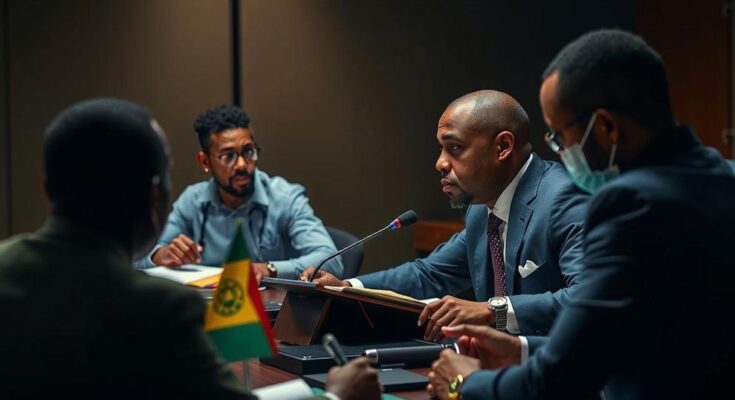Uganda’s appeals court will hear a pivotal case regarding the use of seclusion and restraint in mental health facilities. Activist Benon Kabale, who has personally suffered from these inhumane treatments, is leading the fight to abolish such practices. The court’s ruling could significantly impact the rights of individuals with psychosocial disabilities, challenging the legality of coercive treatment methods established under the Mental Health Act.
In a landmark moment for mental health rights in Uganda, the appeals court is poised to hear a significant case challenging the use of seclusion and physical restraints in government hospitals for individuals with psychosocial disabilities. Bitter memories haunt Benon Kabale, a dedicated human rights activist, who has fought against these practices after his own harrowing experiences at Butabika hospital in past years. His case underscores a dire need to reform archaic mental health practices that many believe infringe upon fundamental human rights. Kabale’s journey began when he suffered seclusion twice at Uganda’s national mental health facility, Butabika hospital—once in 2005 and again in 2010. Both times, he found himself forcibly detained, stripped of his dignity, and locked away in a sealed, lightless room—his humanity reduced to mere treatment statistics. With no ventilation and stripped of control, Kabale lingered in isolation for over 24 hours, an experience that is a chilling testament to the inhumane treatment of vulnerable individuals in mental health care. The 2018 judgment by the high court, ruling against Kabale, only deepened the wounds of discrimination. The judge disregarded Kabale’s testimony, claiming it lacked credibility due to his declared mental health status, further enabling the dangerous stereotype that those with psychosocial disabilities are unreliable witnesses. Kabale and his advocates at the Centre for Human Rights and Development (CEHURD) have redoubled their efforts, appealing the ruling and seeking justice for countless others subjected to similar agony. In December 2018, the Ugandan government enacted the Mental Health Act, explicitly legalizing practices of seclusion. However, there is growing global recognition—championed by organizations such as the World Health Organization (WHO)—that such coercive measures not only exacerbate trauma but also obstruct recovery. These methods violate the core principle of informed consent, vital to respecting the autonomy of individuals within health care. As the court convenes, Kabale remains hopeful that justice will prevail, transforming current practices that strip individuals of their rights and dignity. This case bears the weight of not just legal outcomes, but the potential for a paradigm shift in Uganda’s approach to mental health care and the treatment of psychosocial disabilities. The Court of Appeal holds a pivotal role, representing a chance to affirm essential rights for a marginalized population—insisting that every individual deserves to choose their path to health, free from coercion. Regardless of the verdict, the urgent call remains for Ugandan authorities to put an end to all forms of coercion in mental health treatment, fundamentally altering the landscape of care for those most in need.
The topic revolves around the ethical and legal issues surrounding the treatment of individuals with psychosocial disabilities in Uganda, particularly within the context of mental health care. The case at hand highlights deep-rooted systemic problems, including the acceptance of inhumane treatment methods such as seclusion and restraint, all while questioning the adequacy of existing laws and their alignment with international human rights standards. The 2018 Mental Health Act’s controversial provisions grant legal backing to these coercive methods, fueled by disputes over individual rights in mental health contexts, raising pressing questions about dignity, personhood, and the nature of care itself.
In essence, the case against the Ugandan government’s practices of seclusion and restraint serves as a crucial turning point. It bridges individual stories of suffering with broader societal shifts towards recognizing the inherent rights of those with psychosocial disabilities. As the Court of Appeal deliberates, the outcome could pave the way for essential reforms that protect and respect dignity in mental health care, ultimately impacting countless lives. The imperative remains clear: to abolish coercive practices and uphold the principles of informed consent and human rights in Uganda’s mental health system.
Original Source: www.hrw.org



